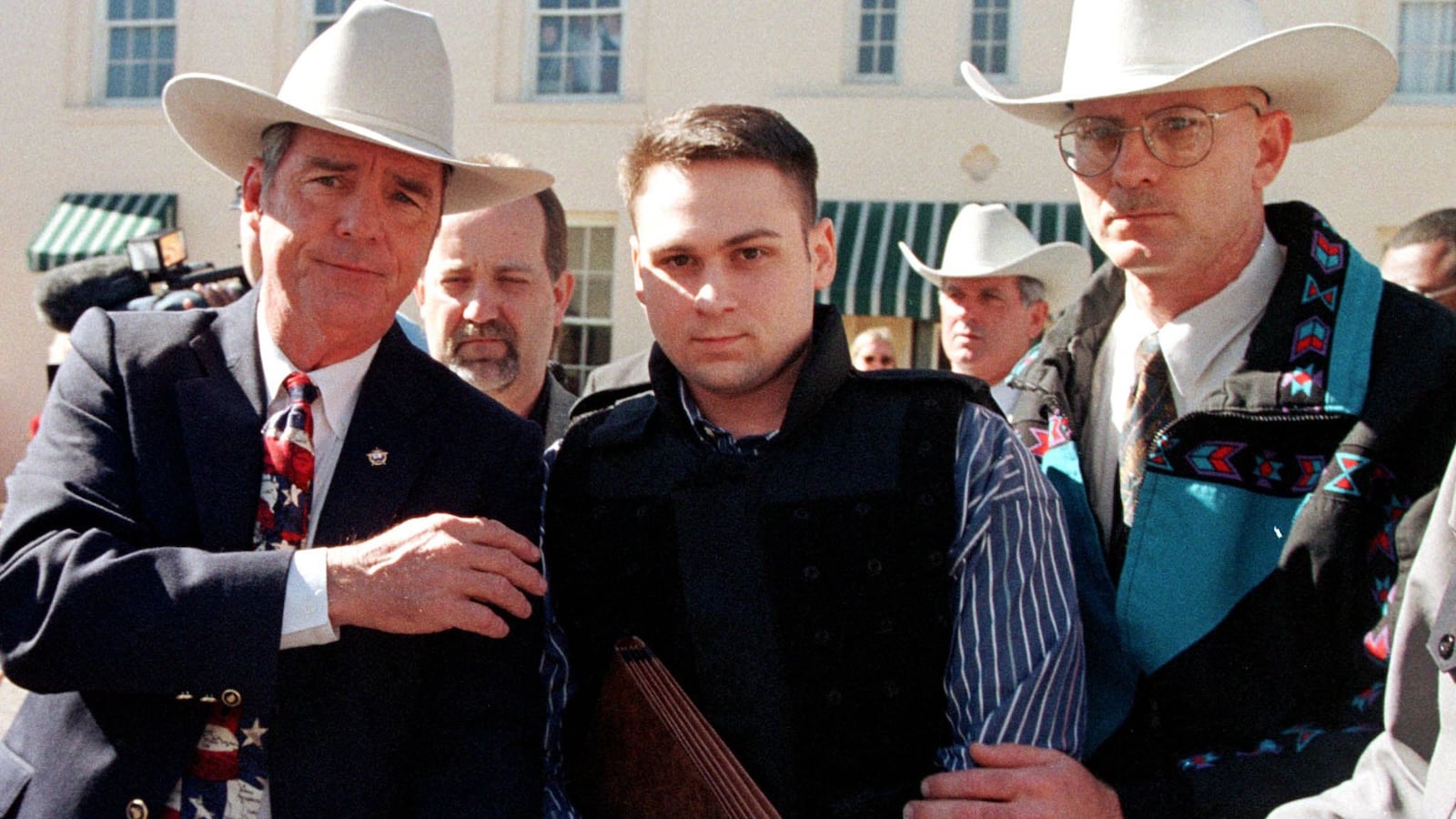Louvon Byrd has already watched one man die for the horrific hate crime against her brother. Later this week, she intends to do it again.
John William King, the ringleader of a trio of racists who dragged James Byrd Jr. to death 20 years ago, is set to be executed by the state of Texas on Wednesday. Louvon will witness the lethal injection, barring the success of any last-minute appeals.
“He’s trying to save his life by all means necessary,” she told The Daily Beast. “But he did live 20 years longer than my brother… and I think that speaks a lot. The punishment would be just to take an injection and go to sleep, and even at that I still think he’s getting off easy.”
Byrd, a 49-year-old father of three, was walking home from a friend’s anniversary party on Martin Luther King Boulevard in Jasper, Texas, during the early hours of June 7, 1998, when three white men kidnapped him and brought him to an isolated rural road.

Undated family photo of James Byrd Jr.
ReutersThey chained Byrd by his ankles to the back of a pick-up truck and drove for nearly three miles, dismembering him. They left parts of Byrd in front of a local black cemetery. The rest of him was found a mile and a half up the road.
Byrd’s family had to relive the gruesome details at three capital murder trials.
“Imagine the family going through three trials and listening to that over and over again to prove kidnapping… at what point was he bound, at what was his head decapitated,” Louvon Byrd said. “But we had to do it, because for justice you have to go beyond what you’re feeling, because it’s nothing close to what James went through that night.”

Painted circles that marked evidence in the dragging death of James Byrd Jr.
Paul Buck/AFP/GettyKing and his accomplices, Shawn Allen Berry and Lawrence Russell Brewer, were convicted. King and Brewer were sentenced to death, and Brewer was executed in 2011. Berry is eligible for parole in 2038.
In recent years, King, 44, has filed a string of unsuccessful appeals to avoid the needle, claiming his defense was inadequate. It would be stunning if King—who is covered in white-supremacy tattoos, including one of a black man hanging from a tree—were granted clemency.
The crime—along with the torture murder of gay college student Matthew Shepard four months later—shocked the nation’s conscience and spurred Congress to pass hate crimes legislation in their names.
“I really believe if we had a strong hate crime law they would have thought twice,” Byrd said of her brother’s killers. “They were so convinced that they would be OK and that they would get away with it.”
Byrd’s family is also trying to make sure that he is remembered in Jasper, a town of less than 8,000 evenly divided between black and white residents which, even after 20 years, is known mainly for the depravity that took place there.
“I know there are individuals who hate that it happened in Jasper and want it to be forgotten, but we never can do that, the family will not let that happen. Because, once you are quiet about anything, before you know it you’re back in that situation,” Louvon Byrd said. “We’re trying to by all means keep his legacy going, with or without the town’s support.”
“I always look at the anniversary and (the town’s) participation to see where their mindset is, and so far this has been the family trying to keep it going rather than the town,” Byrd said.
Last year, on the 20th anniversary, the Byrd Foundation for Racial Healing, which was started and is run by the family, installed a bench at the town’s courthouse inscribed with the words: “Be the change you want to see in the world.”
His sister says the bench has since been moved to a less accessible location and she feels there is waning support for the family’s efforts, which include plans for a multicultural center and an archive of oral histories of hate.
The interim mayor, Gary Gatlin, told the Associated Press that no one is trying to minimize the tragedy, but added, “We’ve just tried to move on.”
The Byrds, though, cannot move one. And one of their goals is to have the public remember James for not just how he died but how he lived.
He was, his sister said, “a people person,” a salesman by trade, and a musician by heart.
“He played the trumpet, he was a piano player… He was known for his music,” she said.
Today, Byrd would be 70 years old. His daughter is now a police officer in Houston, Texas, and a granddaughter is about to graduate from college.
“He missed out on a lot... Most people identify him as a crime, but I like when people identify him as a person,” Louvon said. “James loved people, and he’d like to make a difference.”
“Since he loved music so much, he always would say: ‘You laugh now, but one day I’m going to put Jasper on the map. Just wait and see,’” she recalled. “At the time he was thinking it would be because of his music—but never in his life was he thinking it would be because of his death.”






